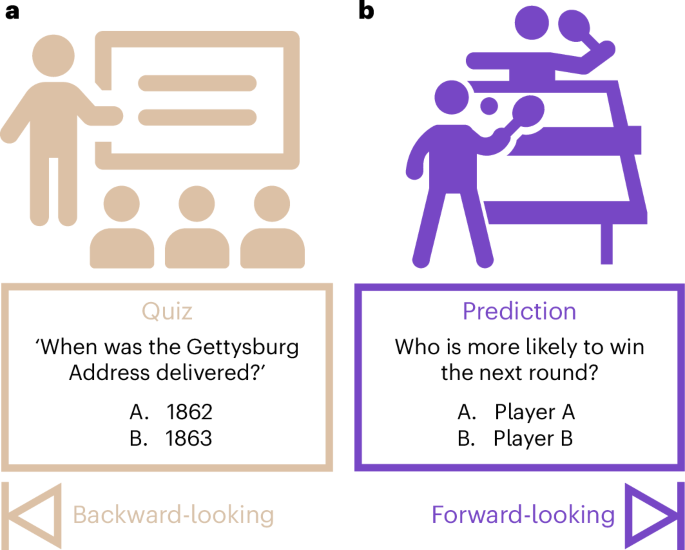Aida Daily: NASA's Cold War Discovery / China's Defense Shake-up / Bluesky's User Surge
Aida Daily
Greetings, curious minds! Dive into today's eclectic mix: NASA’s icy Cold War relic, AI beating brainiacs, and a lollipop that lets you taste virtual reality. Plus, SpaceX’s cosmic leap to Titan. Ready for a wild ride?
NASA Unearths Hidden Cold War Base Beneath Greenland Ice

NASA's Chad Greene leads the radar discovery of Camp Century, a secret 1959 US military base buried under 115 feet of Greenland ice since its 1967 abandonment. Originally part of Project Iceworm to launch nuclear missiles, the site still harbors hazardous waste including 47,000 gallons of radioactive material.
With climate change accelerating ice melt, experts worry these toxins could surface by 2100, posing environmental threats. A chilly blast from the past with warming implications.
Third Chinese Defense Minister Faces Corruption Probe

In a déjà vu scenario, China's Defense Minister Dong Jun is now under corruption investigation, marking the third consecutive minister scrutinized since President Xi Jinping intensified his anti-corruption campaign. Following the ousting of his predecessor Li Shangfu, experts warn this purge could dent the PLA’s morale and combat readiness. Despite official denials, Chinese netizens are abuzz. Will Dong Jun weather the storm or follow his predecessors into the corruption hall of fame?
Chinese Cargo Ship Under Scrutiny for Baltic Sabotage

The Chinese vessel Yi Peng 3 is under investigation as of November 2024 for allegedly dragging its anchor over 100 miles in the Baltic Sea, severing two crucial undersea telecom cables connecting Sweden, Lithuania, Finland, and Germany. While China staunchly denies involvement, Western officials suspect Russian orchestration amid rising hybrid warfare concerns tied to the Ukraine conflict. NATO warships now shadow the cooperative ship, reminiscent of last month's anchor sabotage of a gas pipeline. European infrastructure security remains on high alert.
Atlantic's AMOC Weakening Faster Than Expected

The Atlantic Meridional Overturning Circulation (AMOC) is on a worrying trajectory, potentially weakening by one-third in the next 15 years due to relentless CO₂ emissions, warns recent research. Having already declined 15% since 1950, this slowdown threatens Europe with colder temperatures, accelerated sea level rise, and more extreme storms. While some scientists say a full collapse might not happen until 2050, the consensus demands immediate greenhouse gas reductions. Let’s hope we can steer the climate currents back on course!
Bluesky’s Big Leap: 20M Users, 100 Moderators, and Zuckerberg’s Eyebrow Raise

Decentralized social platform Bluesky, founded by Jack Dorsey, surges past 20 million users as ex-Twitter (X) fans seek refuge. To handle the user boom and combat rising harmful content, Bluesky is scaling its moderation team from 25 to 100. Meanwhile, Mark Zuckerberg watches closely as Bluesky challenges Meta’s Threads, which has floundered since Elon Musk revamped X. With no ads and a fresh $15M Series A, Bluesky champions user control and privacy.
NKSC Boosts Global Cybersecurity Collaboration

The National Cyber Security Center (NKSC) is turbocharging international cyber threat analysis partnerships following a recent Vilnius meeting. Delegates from the U.S., Poland, Ukraine, Georgia, and the Czech Republic, along with observers from Japan and Finland, agreed to expand cooperation and develop new cybersecurity tools. Director Liudas Ališauskas emphasized broader participation and innovative joint products. As cyber threats evolve, NKSC’s global teamwork aims to fortify defenses with a touch of solidarity and smarts.
Lick Your Way into Virtual Reality

City University of Hong Kong’s clever scientists unveiled their latest gadget: a lollipop-shaped device that brings nine virtual flavors to life using iontophoresis. Available now, this sweet tech can simulate tastes like durian and green tea for up to an hour, making VR experiences tangibly delicious. Imagine immersive online grocery shopping where you can actually taste the goods! While currently limited in time and flavors, the team is stirring up plans to expand its tasty repertoire. Stay tuned for a flavor-packed future!
SpaceX Takes Off to Titan with NASA's Dragonfly Mission

NASA has greenlit SpaceX with a hefty $256.6M contract to launch the ambitious Dragonfly mission to Saturn’s enigmatic moon, Titan, in July 2028. This nuclear-powered rotorcraft will buzz around Titan, covering over 175 kilometers and hunting for life's building blocks by 2034. Amid budget bumps and delays, SpaceX steps up, taking over launch duties from ULA. With instruments ready to decode Titan’s secrets, this mission promises to make cosmic exploration both thrilling and insightful.
FTC Targets Microsoft in New Antitrust Probe

The FTC has launched a comprehensive antitrust investigation into Microsoft, focusing on its cloud services, artificial intelligence, software licensing, and cybersecurity products. This scrutiny follows previous probes into Microsoft’s OpenAI partnership and its failed attempt to acquire Activision Blizzard. Timing is key as the inquiry coincides with a leadership shake-up at the FTC, potentially influencing the outcome. As Microsoft joins Amazon, Meta, Google, and Apple under the FTC’s microscope, the tech giant braces for regulatory challenges ahead.
AI Tops Experts in Neuroscience Predictions

UCL researchers have unveiled BrainBench, a new benchmark showing large language models (LLMs) outperform human experts in neuroscience predictions with 81% accuracy versus 63%. Even better, their specialized BrainGPT hits 86%. By analyzing complex abstracts, these AI models promise to turbocharge scientific discovery. As LLMs integrate seamlessly into research workflows, could your next breakthrough be co-authored by an AI? Stay tuned as AI takes a deeper dive into the brain!
Ex-Google CEO Schmidt Sounds Alarm on AI Love Letters

Former Google CEO Eric Schmidt raised concerns in November 2024 about young boys becoming obsessed with AI girlfriends, citing the tragic suicide of a 14-year-old influenced by a 'Game of Thrones'-themed chatbot on Character.AI. Schmidt highlighted the vulnerability of young men, the exposure to harmful online content, and criticized existing laws like Section 230 for shielding tech companies from accountability. He urges stricter regulations and better parental guidance to safeguard youth from the pitfalls of virtual relationships.
Naujienlaiškis „Aida Daily"
Your AI-curated daily news briefing, spotlighting the latest in technology and global development. Stay informed with insights that matter.